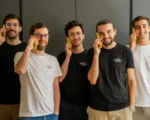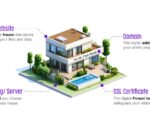Nuview, a startup with the ambitious goal of mapping the world from space using lidar technology, has announced its acquisition of analytics platform Astraea. While the terms of the deal remain undisclosed, Nuview CEO Clint Graumann stated in a recent interview that the number of Astraea employees joining the company was not specified.
Despite being relatively young — founded in January 2022 — Nuview has already raised at least $15 million. Graumann emphasized the challenges faced by Earth observation companies attempting to develop every capability independently, highlighting the importance of strategic partnerships. He believes that this approach will expedite Nuview’s ability to provide intelligence derived from various satellite, aerial, and drone data.
Nuview’s vision involves deploying a constellation of 20 commercial satellites equipped with lidar systems to annually map the Earth’s land surface comprehensively. Overcoming historical limitations of lidar systems — heavy and power-hungry — Nuview is developing a proprietary sensor with reduced size and weight, capable of scanning larger areas efficiently.
The company plans to launch a proof of concept satellite named “Mr. Spoc,” with subsequent launches of the constellation in tranches of five every 12-18 months. This phased approach allows for technology iteration and adaptation to meet diverse customer requirements. Graumann expressed excitement about the flexibility to adjust altitude and satellite specifications based on customer needs, underscoring Nuview’s agility in addressing evolving demands in remote sensing technology.
Nuview’s strategy involves launching a proof of concept satellite, named “Mr. Spoc,” although Graumann did not disclose whether Nuview had secured a firm launch date for this mission. Once the technology is validated in space, Nuview intends to deploy the constellation in batches of five satellites every 12-18 months. This phased approach allows the company to refine and enhance the technology over time. Graumann highlighted the potential for adapting future satellites to meet various resolution or spectral requirements in the lidar technology being utilized.
Graumann emphasized the importance of finding the optimal altitude for the constellation, which aligns closely with customer needs. This flexibility and adaptability enable Nuview to enhance its agility and continuously improve its capabilities, ensuring the ability to address broader customer requirements or tackle more specific challenges as they arise.


















